第70章
In some places the currents ran with great force close to the banks, especially where these receded to form long bays or enseadas, as they are called, and then we made very little headway.In such places the banks consist of loose earth, a rich crumbly vegetable mold supporting a growth of most luxuriant forest, of which the currents almost daily carry away large portions, so that the stream for several yards out is encumbered with fallen trees whose branches quiver in the current.When projecting points of land were encountered, it was impossible, with our weak crew, to pull the cuberta against the whirling torrents which set round them; and in such cases we had to cross the river, drifting often with the current, a mile or two lower down on the opposite shore.There generally sprung a light wind as the day advanced, and then we took down our hammocks, hoisted all sail, and bowled away merrily.Penna generally preferred to cook the dinner ashore, when there was little or no wind.About midday on these calm days, we used to look out for a nice shady nook in the forest with cleared space sufficient to make a fire upon.I then had an hour's hunting in the neighbouring wilderness, and was always rewarded by the discovery of some new species.During the greater part of our voyage, however, we stopped at the house of some settler, and made our fire in the port.Just before dinner it was our habit to take a bath in the river, and then, according to the universal custom on the Amazons, where it seems to be suitable on account of the weak fish diet, we each took half a tea-cup full of neat cashaca, the "abre" or " opening," as it is called, and set to on our mess of stewed pirarucu, beans, and bacon.Once or twice a week we had fowls and rice; at supper, after sunset, we often had fresh fish caught by our men in the evening.The mornings were cool and pleasant until towards midday; but in the afternoons, the heat became almost intolerable, especially in gleamy, squally weather, such as generally prevailed.We then crouched in the shade of the sails, or went down to our hammocks in the cabin, choosing to be half stifled rather than expose ourselves on deck to the sickening heat of the sun.
We generally ceased travelling about nine o'clock, fixing upon a safe spot wherein to secure the vessel for the night.The cool evening hours were delicious; flocks of whistling ducks (Anas autumnalis), parrots, and hoarsely-screaming macaws, pair by pair, flew over from their feeding to their resting places, as the glowing sun plunged abruptly beneath the horizon.The brief evening chorus of animals then began, the chief performers being the howling monkeys, whose frightful unearthly roar deepened the feeling of solitude which crept up as darkness closed around us.
Soon after, the fireflies in great diversity of species came forth and flitted about the trees.As night advanced, all became silent in the forest, save the occasional hooting of tree-frogs, or the monotonous chirping of wood-crickets and grasshoppers.
We made but little progress on the 20th and two following days, on account of the unsteadiness of the wind.The dry season had been of very brief duration this year; it generally lasts in this part of the Amazons from July to January, with a short interval of showery weather in November.The river ought to sink thirty or thirty-five feet below its highest point; this year it had declined only about twenty-five feet, and the November rains threatened to be continuous.The drier the weather the stronger blows the east wind; it now failed us altogether, or blew gently for a few hours merely in the afternoons.I had hitherto seen the great river only in its sunniest aspect; I was now about to witness what it could furnish in the way of storms.
On the night of the 22nd the moon appeared with a misty halo.As we went to rest, a fresh watery wind was blowing, and a dark pile of clouds gathered up river in a direction opposite to that of the wind.I thought this betokened nothing more than a heavy rain which would send us all in a hurry to our cabins.The men moored the vessel to a tree alongside a hard clayey bank, and after supper, all were soon fast asleep, scattered about the raised deck.About eleven o'clock I was awakened by a horrible uproar, as a hurricane of wind suddenly swept over from the opposite shore.The cuberta was hurled with force against the clayey bank;Penna shouted out, as he started to his legs, that a trovoada de cima, or a squall from up-river, was upon us.We took down our hammocks, and then all hands were required to save the vessel from being dashed to pieces.The moon set, and a black pall of clouds spread itself over the dark forests and river; a frightful crack of thunder now burst over our heads, and down fell the drenching rain.Joaquim leapt ashore through the drowning spray with a strong pole, and tried to pass the cuberta round a small projecting point, while we on deck aided in keeping her off and lengthened the cable.We succeeded in getting free, and the stout-built boat fell off into the strong current farther away from the shore, Joaquim swinging himself dexterously aboard by the bowsprit as it passed the point.It was fortunate for us that he happened to be on a sloping clayey bank where there was no fear of falling trees; a few yards farther on, where the shore was perpendicular and formed of crumbly earth, large portions of loose soil, with all their superincumbent mass of forest, were being washed away; the uproar thus occasioned adding to the horrors of the storm.